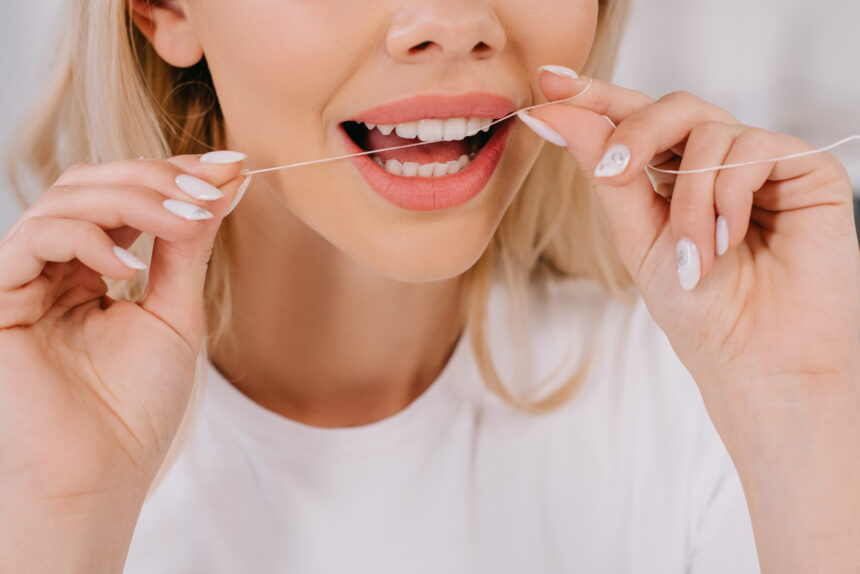Daily brushing and flossing, along with routine preventive dentistry visits, are the keys to a healthy smile. But even if you follow these protocols and believe that you have excellent oral habits, chances are, you could still make a few changes for the better. Your dentist in Lombard is committed to patient education and to making sure you are taking the best possible care of your teeth. In this post, she shares a few little-known tips that can take your dental hygiene to the next level.
Contact Dental Care of Lombard to schedule an appointment for yourself or the whole family.
1. Brush Your Teeth First Thing in the Morning
You know that you should brush your teeth twice a day. But like many people, you may wait until after breakfast. Actually, experts suggest brushing first thing after you wake up. Brushing right away helps to remove the bacteria and plaque that build up overnight. It also helps to fortify your teeth against acidity in your breakfast foods.
If you feel that you must brush after breakfast, wait 30-60 minutes before picking up that toothpaste. If you brush too soon, you will simply rub acid from your food into your dental enamel. (And many breakfast foods are notoriously acidic.) While you wait, drink some water to help flush away food particles.
2. Learn the Right Way to Floss
If you already floss daily, way to go! Only 31.6% of US adults report doing so every day. But it’s still important to learn the proper flossing technique. First, use at least 18 inches of floss, winding each end around your two middle fingers. Unspool the floss as you go. This will ensure that you are using a clean section of floss between each tooth.
Gently glide the floss between your teeth and along your gum line, making a C-shaped motion at the top of each tooth. If you are too aggressive and snap the floss against your gums, it can cause bleeding and irritation.
3. Don’t Use a Hard Toothbrush
You would think that hard-bristled toothbrushes would be better for you. After all, a more abrasive brush can better remove bacteria and plaque, right? Actually, hard toothbrushes can also erode your dental enamel. This will expose the softer, underlying dentin, which is both more sensitive and more prone to decay. To best protect your teeth, choose a soft-bristled brush. Either traditional or electric is fine.
4. Start Chewing Gum
It may have gotten you into trouble at school, but chewing gum can be a great habit for your oral health – as long as it’s sugar free. Chewing gum after meals can help to stimulate saliva flow by ten to twelve times! In turn, saliva helps to neutralize acid and remineralize tooth enamel.
Just be sure to toss the gum after twenty minutes. Prolonged chewing can strain your jaw joints and could even lead to TMJ disorder.
5. Don’t Rinse after Brushing
After brushing, it’s pretty common for most of us to spit out the remaining toothpaste and rinse our mouths with water. But it’s actually better to stop after spitting. Rinsing will flush away the remaining fluoride, which helps to strengthen tooth enamel.
6. Be Careful About Your Beverages
You already know that sugar can lead to cavities. But many of the most concentrated amounts of sugar are found, not in our food, but in what we drink. Soda is particularly harmful because, in addition to containing high amounts of sugar, it is also very acidic. (Meaning that diet soda is pretty bad for your teeth, too.)
But juice, which is often surrounded by a health halo, is also quite harmful, especially for kids. Juice is essentially liquid sugar, without the healthy fiber found in a whole piece of fruit. That’s why the American Academy of Pediatrics (AAP) recommends that juice not be given to children under age 1 and that it be strictly limited after that.
7. Start Dental Visits at a Very Young Age
Another important way to protect your child’s teeth is to schedule regular visits with a dentist in Lombard. And these visits should begin much earlier than you probably think. Experts recommend that children initially visit the dentist no later than six months after their first tooth appears or by their first birthdays, whichever comes first. This initial visit will give your dentist a chance to check for normal dental development. And it will also acclimate your child to the dentist’s office, making it a routine part of life and helping to ensure lifelong good habits.
8. Don’t Share Your Toothbrush
You share everything with your spouse, and you teach your kids to be generous, too. So what could be the harm in using the same toothbrush? Actually, there’s quite a lot of harm. Sharing a toothbrush passes oral bacteria back and forth between the people who use it. And since cavities and gum disease are contagious, this could mean that your whole family will suffer from tooth decay and other problems.
Sharing toothbrushes – and even the same tubes of toothpaste – can also spread diseases like COVID-19. And perhaps most alarmingly, if you or someone in your family suffers from periodontitis or another condition that causes bleeding gums, sharing a toothbrush can spread blood-borne illnesses such as hepatitis C.
In addition to having separate toothbrushes for each member of your family, it’s best to store them separately. If you do choose to keep them together, make sure that they do not touch, as bacteria can pass from one to the other.
Contact Your Dentist in Lombard Today
For more oral health care tips and tricks, contact your dentist in Lombard.
Schedule an appointment online or call us at 630-629-5700.

